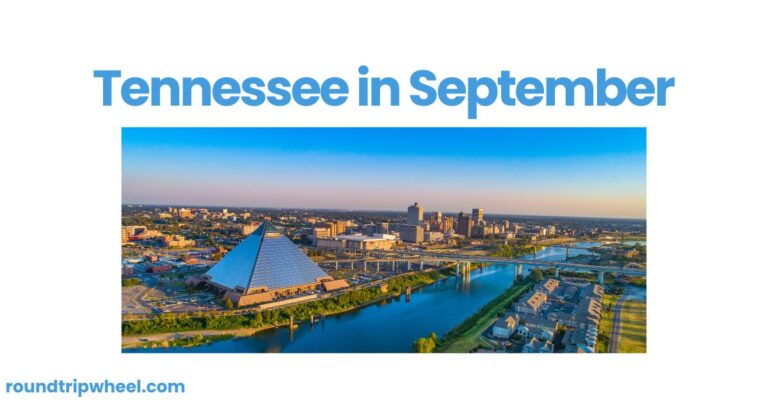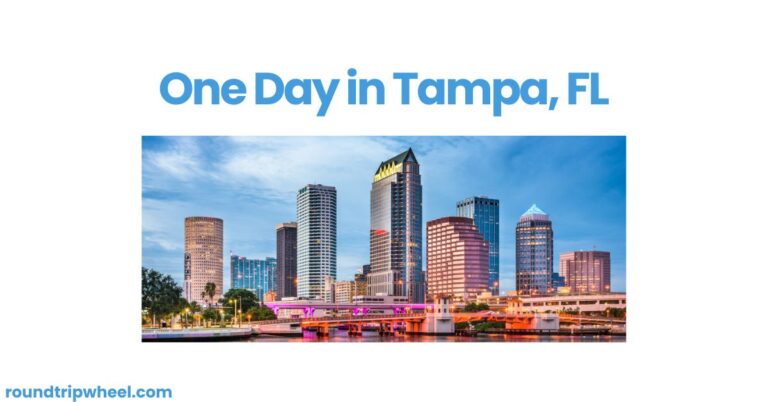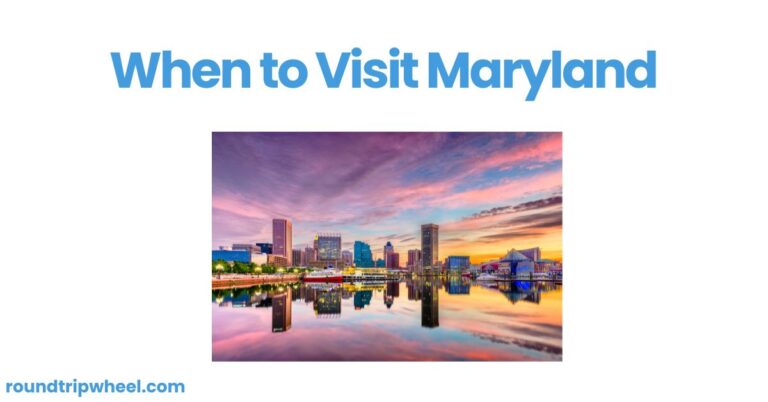The Best & Worst Times to Visit New Jersey

New Jersey, known as the Garden State, is a diverse and exciting destination that offers something for every type of traveler. From the iconic Jersey Shore to the historic cities and quaint small towns, this mid-Atlantic state is a treasure trove of experiences waiting to be explored. However, timing your visit can make a significant difference in your overall experience. In this article, we’ll delve into the best and worst times to visit New Jersey, considering factors such as weather, crowds, events, and costs.
The Best Times to Visit New Jersey
Late Spring (May-Early June)
As the winter chill subsides and the vibrant blooms of spring unveil their beauty, late spring is an excellent time to visit New Jersey. The weather during this period is pleasantly warm, with temperatures ranging from the mid-60s to the mid-70s Fahrenheit (18-24°C). This makes it ideal for outdoor activities such as hiking, cycling, and exploring the state’s numerous parks and gardens.
One of the highlights of visiting New Jersey in late spring is the opportunity to witness the breathtaking cherry blossom displays. The annual Cherry Blossom Festival in Branch Brook Park, Newark, is a must-see event, where you can marvel at the stunning pink and white blossoms that blanket the park.
Additionally, late spring is a great time to enjoy various food and cultural festivals that take place across the state. Events like the Carolyn Dorfman Dance Company’s Annual Spring Performances in Union County and the Cranbury Farmers Market in Middlesex County offer a taste of local culture and cuisine.
Early Fall (September-October)
As the summer heat subsides and the leaves begin to change color, early fall in New Jersey is nothing short of spectacular. The weather during this period is mild and comfortable, with average temperatures ranging from the mid-60s to the mid-70s Fahrenheit (18-24°C), making it an ideal time for outdoor activities and exploring the state’s natural beauty.
One of the main attractions during early fall is the stunning foliage displays that paint the state in a vibrant palette of reds, oranges, and yellows. The best places to witness this natural spectacle include the Delaware Water Gap National Recreation Area, the Great Swamp National Wildlife Refuge, and the historic town of Princeton.
Early fall is also a prime time for various festivals and events in New Jersey. The Hoboken Arts & Music Festival, the Cape May Food & Wine Celebration, and the Tuckerton Seaport Fall Festival are just a few examples of the many events that celebrate the state’s rich culture, cuisine, and history.
The Worst Times to Visit New Jersey
Winter (December-February)
While New Jersey can be an enchanting destination during the winter months, with its twinkling holiday displays and occasional snowfall, this season is generally considered the worst time to visit the state. Temperatures during this period can be bitterly cold, with average highs ranging from the mid-30s to the low 40s Fahrenheit (2-6°C) and lows dipping below freezing.
Winter weather in New Jersey can be unpredictable, with the potential for heavy snowfall, ice storms, and biting winds, which can make outdoor activities and sightseeing challenging. Additionally, many popular attractions and businesses may have reduced hours or be closed entirely during the winter months, limiting the available options for visitors.
However, if you’re visiting New Jersey during the winter, there are still plenty of indoor activities and events to enjoy, such as visiting museums, attending theater performances, or exploring the state’s lively food and beverage scene.
Late Summer (August)
While the summer months are generally considered a prime time to visit New Jersey, late August can be a less-than-ideal time for several reasons. The weather during this period can be extremely hot and humid, with average temperatures ranging from the mid-80s to the low 90s Fahrenheit (29-33°C), making outdoor activities uncomfortable and potentially dangerous.
Additionally, late August is the peak of the tourist season, which means that popular destinations like the Jersey Shore and major cities like Atlantic City and Cape May can be overcrowded and expensive. Hotels, restaurants, and attractions may be at their busiest, leading to long lines, higher prices, and a less enjoyable overall experience.
However, if you don’t mind the crowds and heat, late August can still offer some unique experiences, such as attending the Atlantic City Airshow or the New Jersey State Fair.
Factors to Consider When Planning Your Visit
Weather
New Jersey’s weather can be highly variable, ranging from hot and humid summers to cold and snowy winters. Before planning your visit, it’s essential to consider the weather conditions during your preferred travel dates. If you’re aiming for outdoor activities, late spring and early fall offer the most pleasant temperatures and reduced chances of extreme weather conditions.
Crowds and Costs
Peak tourist seasons, such as summer and holiday periods, tend to attract larger crowds and higher prices for accommodations, dining, and attractions. If you prefer fewer crowds and lower costs, consider visiting during the shoulder seasons (late spring or early fall) or the off-season (winter, excluding holidays).
Events and Festivals
New Jersey is home to a wealth of events and festivals throughout the year, celebrating everything from food and wine to music and the arts. If you’re interested in attending a specific event or festival, plan your visit accordingly to ensure you don’t miss out on the festivities.
Personal Preferences
Ultimately, the best time to visit New Jersey will depend on your personal preferences and travel goals. If you’re a beach lover, the summer months may be ideal, while those seeking a more relaxed and budget-friendly experience might prefer the shoulder seasons. Consider your interests, priorities, and travel style when determining the optimal time for your visit.
Conclusion
New Jersey is a destination that offers something for everyone, no matter the season. Whether you prefer the vibrant blooms of spring, the warm summer days at the beach, the stunning fall foliage, or the cozy winter charm, there’s always a reason to visit this diverse and captivating state. By considering the best and worst times to visit, factoring in weather, crowds, events, and costs, you can ensure that your experience in New Jersey is truly memorable and tailored to your preferences.

About Author
Hey there, fellow explorers! I’m Mark Rodriguez, a big fan of adventures and always hungry for more. Packed with stories and a trusty camera, I’m on a mission to explore cool places around the world.
I love diving into new cultures and landscapes. As a travel writer, my goal is to get you excited about stepping out of your comfort zone, trying new things, and discovering the awesome magic our world has.
Check out my blog for cool stories, travel ideas, and helpful tips to plan your own amazing getaway!





